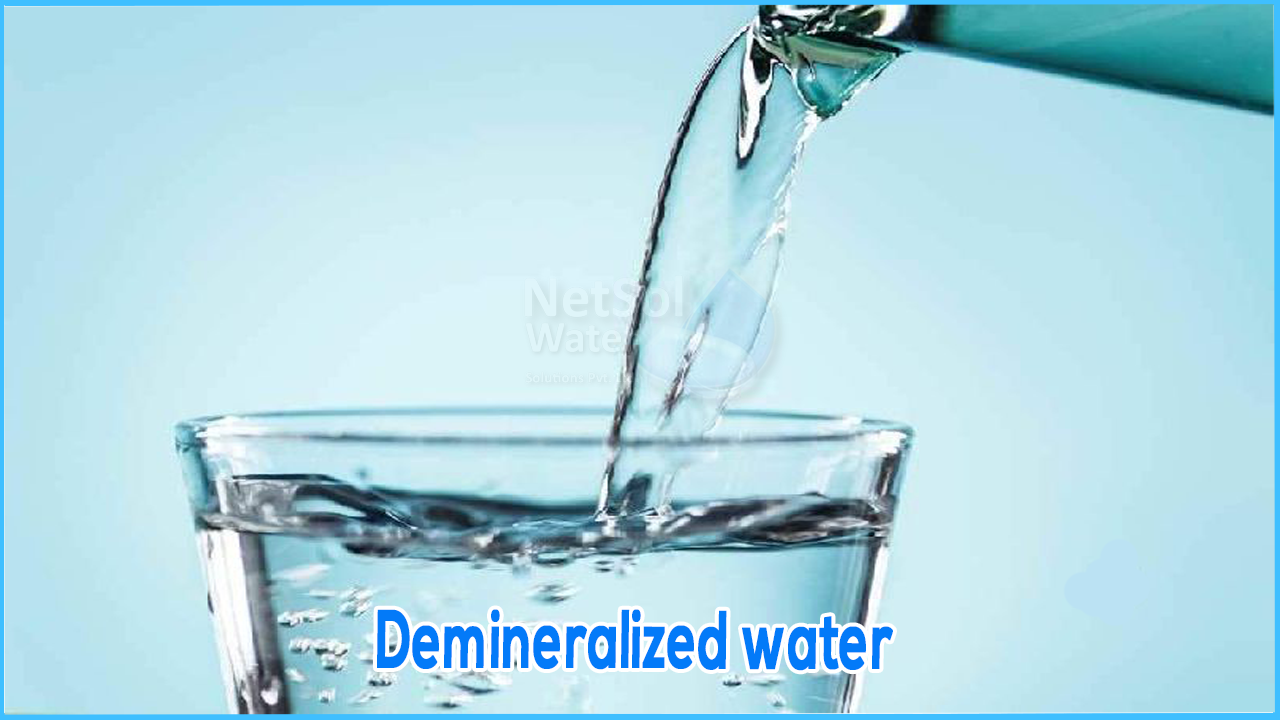Demineralized water is typically produced using ion exchange, electrodeionization, or membrane filtration technologies, which can be more efficient than distillation in producing ultrapure water.
Demineralization techniques such as ion exchange, electrodeionization, and membrane filtration can produce water that is nearly free of minerals and salts.
· Alkalinity (CO32-, HCO3–)
· Calcium (Ca2+)
· Chloride (Cl–)
· Iron (Fe3+)
· Magnesium (Mg2+)
· Manganese (Mn2+)
· Nitrate (NO3–)
· Potassium (K+)
· Silica (SiO2)
· Sodium (Na+)
· Sulphates (SO42-)
DEMINERALISED WATER IS PRODUCED IN 3 WAYS
i) Positive ions are replaced with hydrogen ions, and negative ions with hydroxide ions.
ii) To keep the resins regenerated, an electric current is passed through them.
iii) Unwanted ions migrate away from the reaction surface and toward the electrodes.
DEMINERALISED WATER IS EXTREMELY CORROSIVE:
· It cannot be distributed via pipes or storage tanks because the aggressive water would leach metals and other materials from the pipes and other plumbing materials.
· Demineralised water has a bad taste and has no thirst-quenching properties.This is due, once again, to a lack of minerals.
· Demineralised water has been shown to have negative health effects on humans due to a lack of certain constituents.
BENEFITS OF DEMNERIZED WATER
1) POWER: Demineralized water is frequently used in the power industry for boiler feed water and steam generation. High-pressure boilers and, as a result, more complex feed water treatment systems are required for boilers that generate steam to power turbines.
2) REFINERY: Refineries, like the power industry, use demineralized water to feed their high-pressure boilers. Hardness and dissolved solids can devastate a facility's equipment, and softening is frequently insufficient treatment for most high-pressure boilers and process streams. Because many higher-pressure boilers require a higher quality of water with fewer contaminants than some lower-pressure boilers, demineralization via ion exchange or membrane filtration (mostly reverse osmosis or nanofiltration) is typically included in the water treatment train.
3) PETROCHEMICAL AND CHEMICALS:High-purity boiler feed water is also required for the petrochemical and chemical industries. Demineralization is used to accomplish this.Cooling tower blowdown can also be treated with demineralization.
4) FOOD AND BEVERAGE: Demineralized water is frequently used to clean containers and equipment. It is also used in certain food processing applications, though membrane filtration and typically used to remove organic material, bacteria, viruses, and so on. Due to quality regulations, food and beverage production requires ultrapure water at all stages of the manufacturing process, so demineralization is frequently part of the overall water treatment process.
5) PHARMACEUTICALS AND CHEMICALS: Deionized and distilled water are used in the production of pharmaceuticals and cosmetics to ensure product quality and safety. Reverse osmosis or deionization will be used to produce demineralized water for various uses such as rinsing and cleaning, whereas formulations will typically use distilled water.



